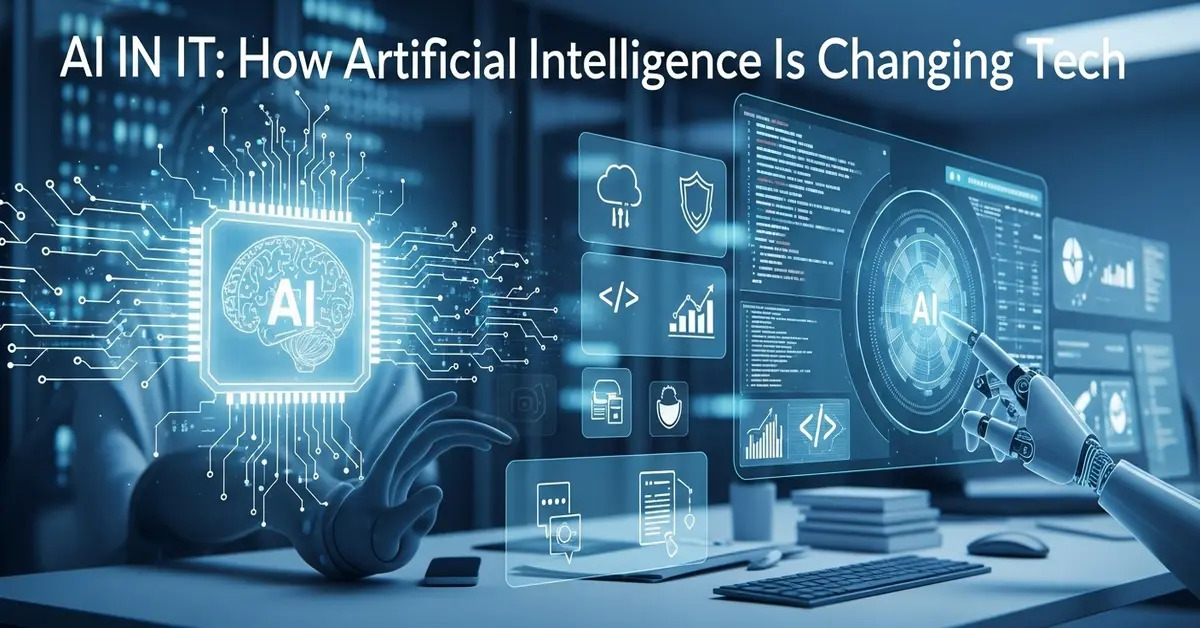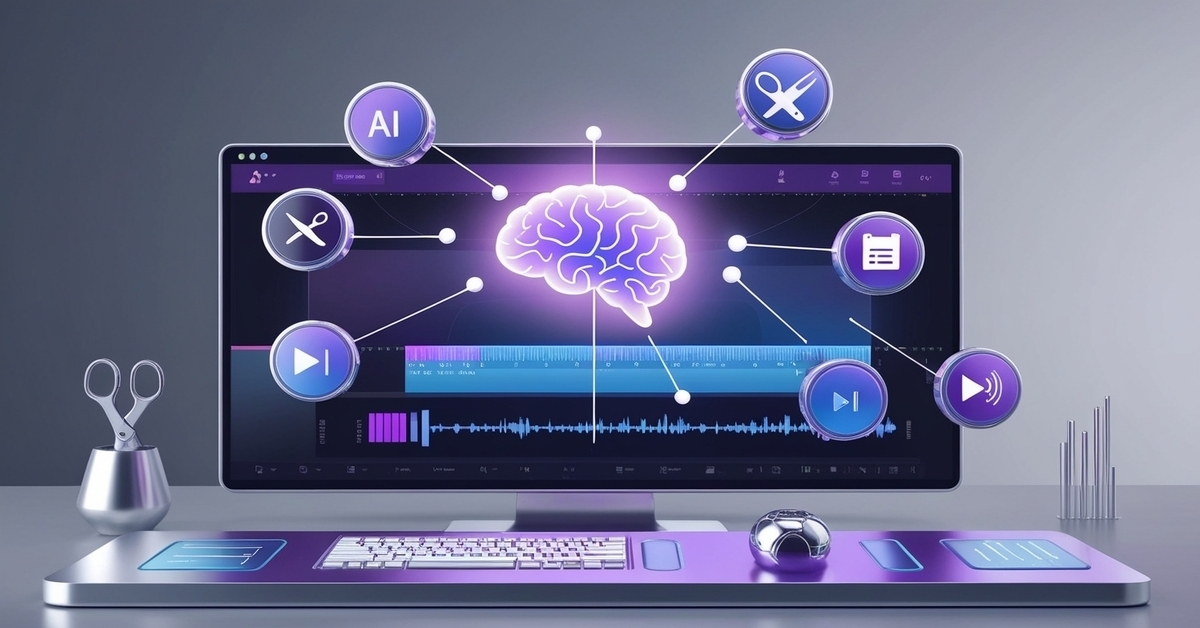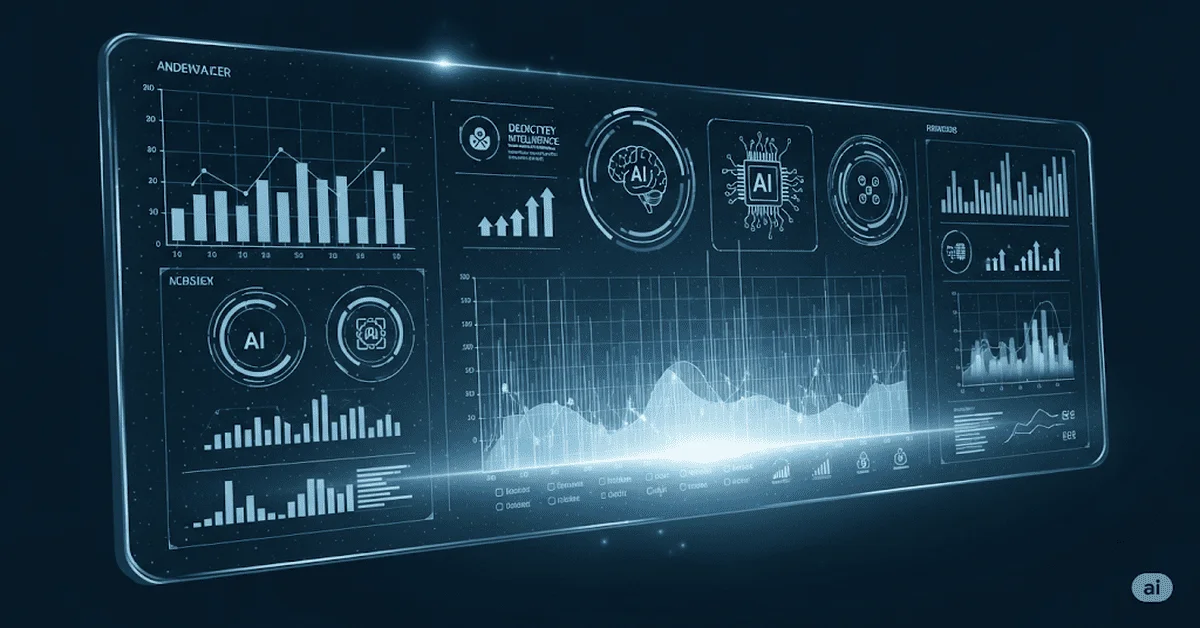Artificial Intelligence or AI, is becoming a powerful part of modern technology. It’s no longer just something from science fiction or big research labs. Today, AI is in the apps we use, the websites we visit, and even the software that runs businesses and keeps our data safe. In the world of Information Technology (IT), AI is helping companies and developers work faster, solve problems better, and make systems smarter and more secure. This article explains how AI is changing IT, using simple everyday words and real life examples that are easy to understand.
What Is Artificial Intelligence?
AI is a type of technology that lets machines think and learn like humans. It helps computers understand information, make decisions, and improve their work over time. For example, when you use your phone’s voice assistant, or when a website shows you recommendations based on your past activity, AI is doing the work behind the scenes. In the IT field, AI can help developers write better code, automate tasks, find bugs, protect against threats, and even handle customer service. These changes are saving time, reducing costs, and improving the way businesses run.
How AI Is Helping Software Development?
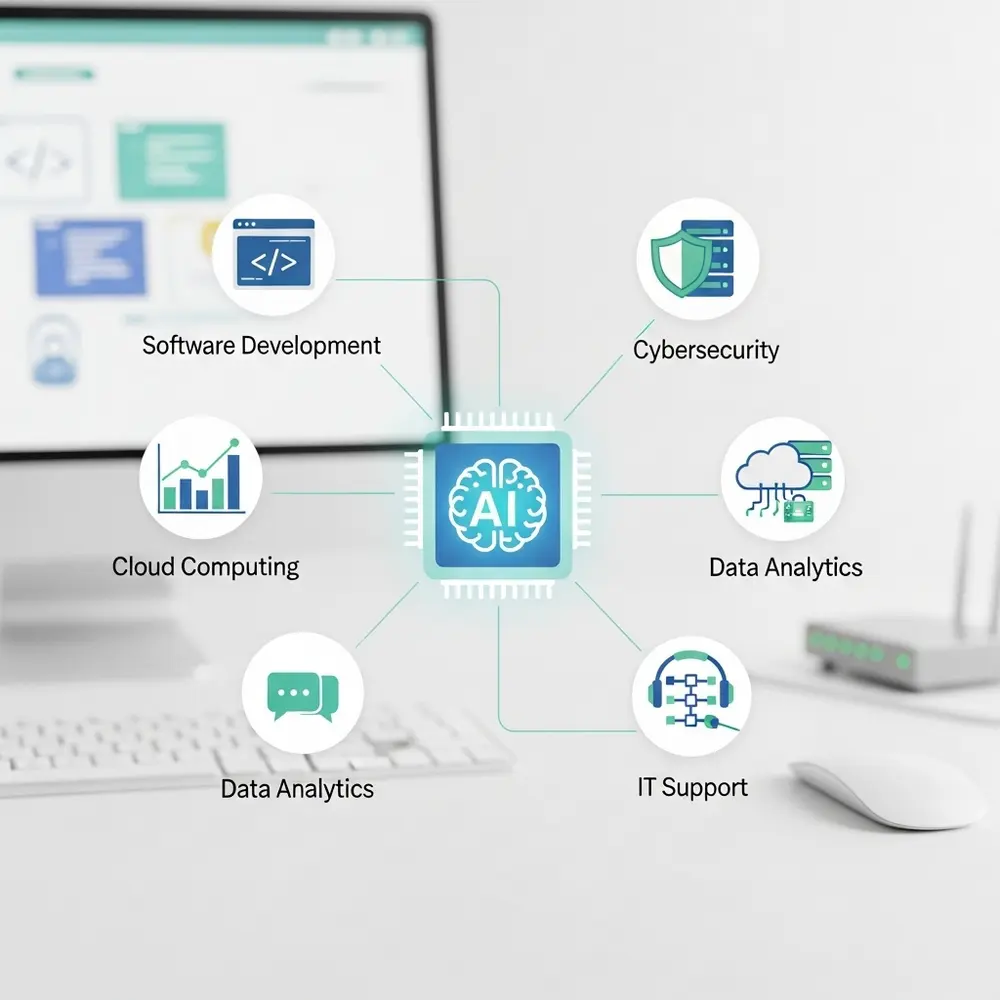
Building software is not easy. Writing, testing, and debugging code often requires significant time, focus, and effort from developers. But with AI, some of these tasks can be done faster and more accurately.
Key Benefits in Software Development:
- Code Suggestions and Autocomplete: Tools like GitHub Copilot and ChatGPT can suggest lines of code as developers type, making it quicker to write clean code.
- Bug Detection: AI can find problems in code that are hard for humans to spot, especially in large projects.
- Testing: AI powered tools can automatically test software and highlight which parts need fixing or improvement.
- Documentation Help: AI can write user manuals, explain how functions work, or help with translating technical language into simpler terms.
By using AI, developers can focus on solving big problems instead of spending time on small repetitive tasks.
How AI Is Improving Cybersecurity?
In today’s world, keeping data safe is a top priority. Hackers and cyber threats are always trying new ways to break into systems. Artificial intelligence assists by identifying patterns within data and detecting unusual or suspicious activities instantly.
How AI Makes Systems Safer:
- Threat Detection: AI scans traffic and user behavior to find unusual activity that might mean a security risk.
- Faster Response: Once a threat is spotted, AI can alert security teams or even stop an attack automatically.
- Risk Prediction: AI can guess where future attacks might come from by learning from past events.
- Spam and Phishing Filters: AI helps block harmful emails and links from reaching users.
These tools make it easier for companies to protect their systems without needing large security teams working around the clock.
How AI Helps with IT Support?
Every company has an IT support team to solve tech problems. But many support tickets are simple issues, like forgotten passwords or software updates. Tasks like customer support or scheduling can now be managed automatically by AI driven chatbots and virtual assistants.
AI in IT Support Can:
- Answer common questions instantly
- Guide users through step by step solutions
- Learn from past support cases to solve problems faster
- Work 24/7, even outside office hours
This helps human IT workers focus on more complex problems, and also gives users faster service.
AI and Cloud Computing
Cloud computing is a service that lets people store and access data and applications over the internet instead of on local machines. When AI is added to cloud platforms, it makes them smarter and more efficient.
Benefits of AI in Cloud Services:
- Resource Management: AI can control how much storage or power is being used and adjust it as needed.
- Cost Control: AI can analyze usage patterns and suggest ways to save money.
- Faster Data Processing: With AI, cloud systems can handle huge amounts of data faster than before.
- Smart Recommendations: Cloud AI can suggest tools, apps, or security settings based on how a business operates.
Major cloud providers like Amazon Web Services (AWS), Microsoft Azure, and Google Cloud already offer built in AI tools.
AI in Data Management
Every business collects data whether it’s about customers, sales, or employee performance. Managing all this data can be overwhelming. AI helps sort, clean, and understand large amounts of information much faster than a human ever could.
What AI Can Do with Data:
- Clean up messy or duplicate data
- Spot trends and patterns
- Predict future behavior, like customer purchases
- Help make better decisions based on facts
AI in data management means companies can respond quickly and stay ahead of their competition.
AI Makes Networks Smarter
Networks connect computers and devices so they can share information. Managing these networks is a complex job that involves watching traffic, fixing errors, and keeping everything running smoothly. AI helps network engineers keep things under control.
AI for Network Management:
- Monitors traffic to find slow or failing parts
- Predicts where problems might happen
- Fixes small issues without needing human help
- Helps balance traffic to avoid overload
This makes networks more reliable and reduces downtime.
How Businesses Are Using AI in IT?
AI isn’t just for big tech companies. Small businesses, schools, hospitals, and even government offices are using AI to improve their tech systems.
Common Uses Include:
- AI powered analytics to study customer behavior
- Automation tools to speed up daily work
- Smart assistants that help with scheduling or communication
- AI driven inventory or supply chain tracking
By using these tools, organizations can grow faster and provide better service.
Challenges of Using AI in IT
Even though AI is powerful, it’s not perfect. There are still challenges and concerns to think about when using AI in IT.
Main Concerns Include:
- Privacy: AI collects a lot of data, which must be handled carefully.
- Bias: can occur when artificial intelligence is trained on low quality or unbalanced data, leading it to make decisions that may be unfair or inaccurate.
- Cost: Setting up AI systems can be expensive.
- Job Changes: Some people worry AI might take over human jobs, especially in support or data entry.
To get the most out of AI, companies need to use it responsibly, train their teams, and make sure they follow ethical rules.
The Future of AI in Tech
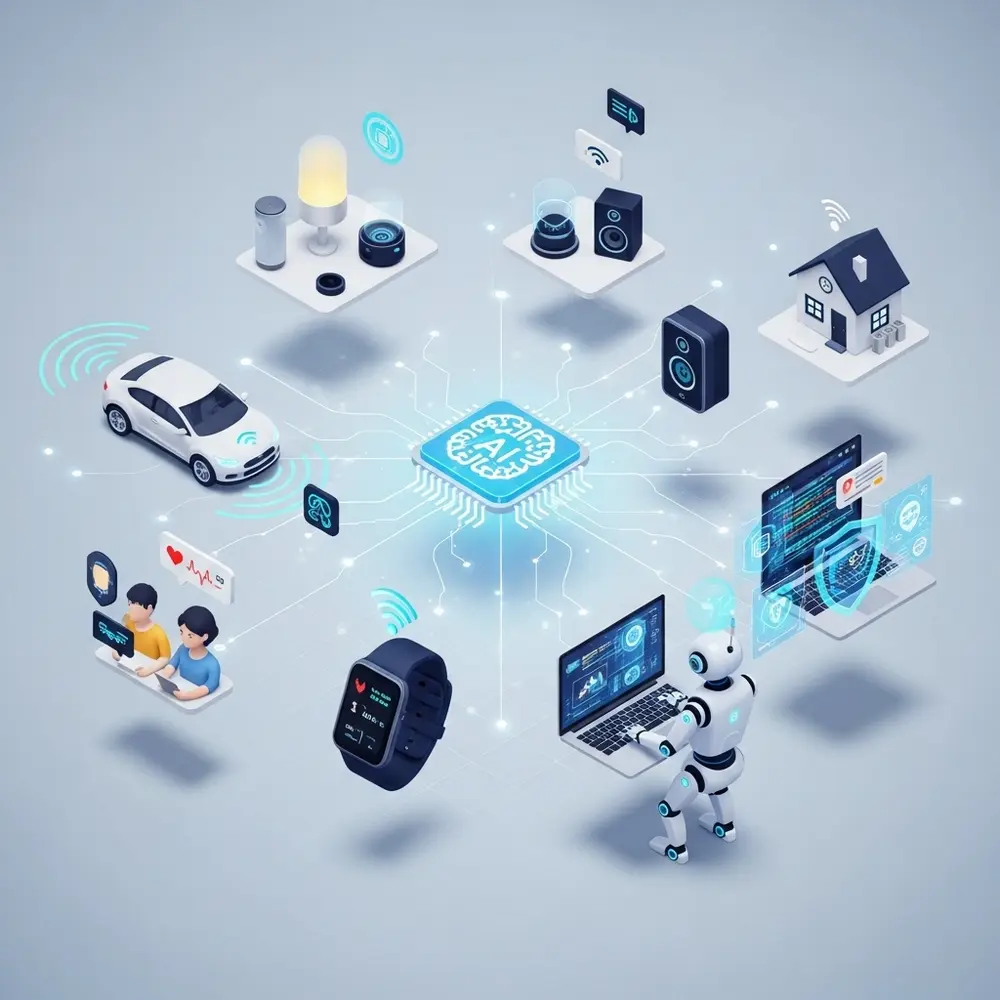
AI is still growing fast, and we are only beginning to see what it can do. In the future, AI might help us build software even faster, stop new types of cyber threats, and create systems that can fix themselves. Some experts even believe AI will help design entire networks or write full programs with very little human input. We can also expect to see AI in more devices from smart homes to self driving cars and wearable tech. As AI tools become easier to use, more people (even those without tech backgrounds) will be able to create things using AI.
Final Thoughts
Artificial intelligence is transforming the field of information technology in several innovative and impactful ways. From making software development smoother, to improving security, and helping manage data and networks, AI is helping people work smarter, faster, and more safely. While there are still challenges to overcome, it’s clear that AI is a powerful tool that will continue to shape the future of technology. By understanding the basics of how AI works in IT and using it wisely, businesses and individuals can unlock huge benefits and stay ahead in this fast moving digital world.
